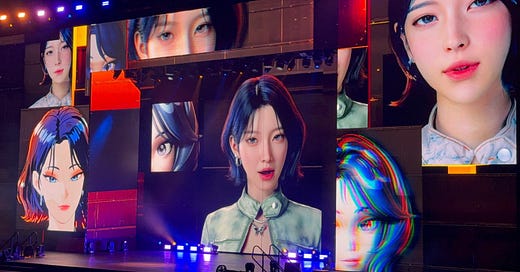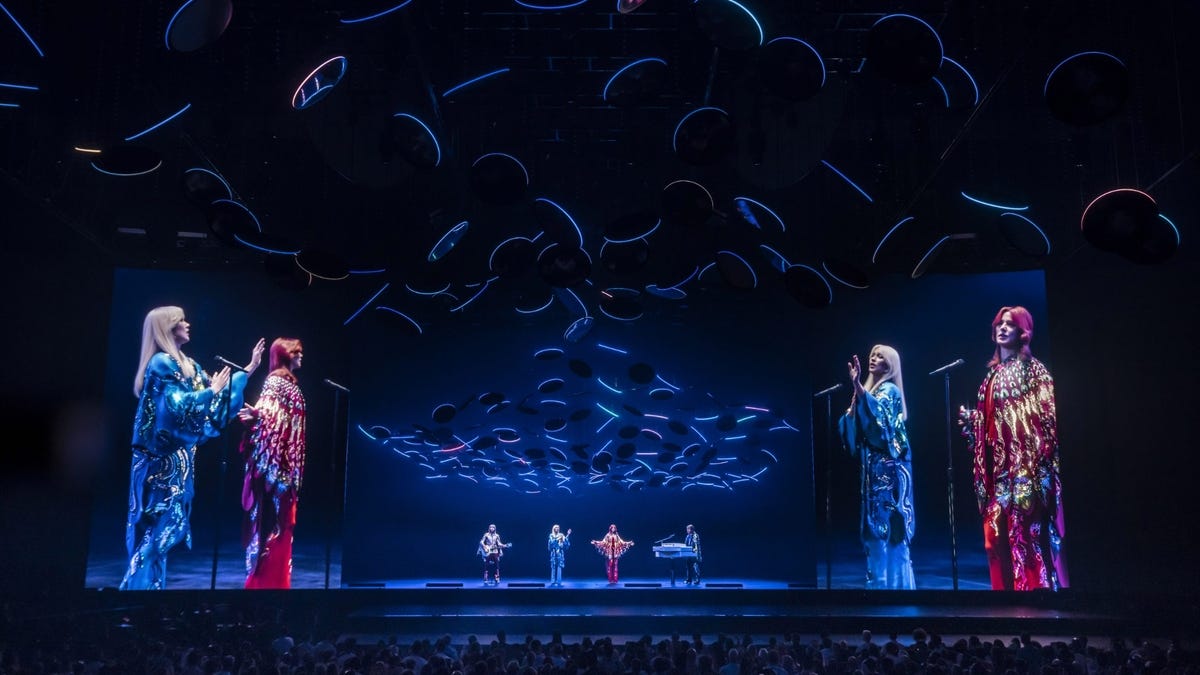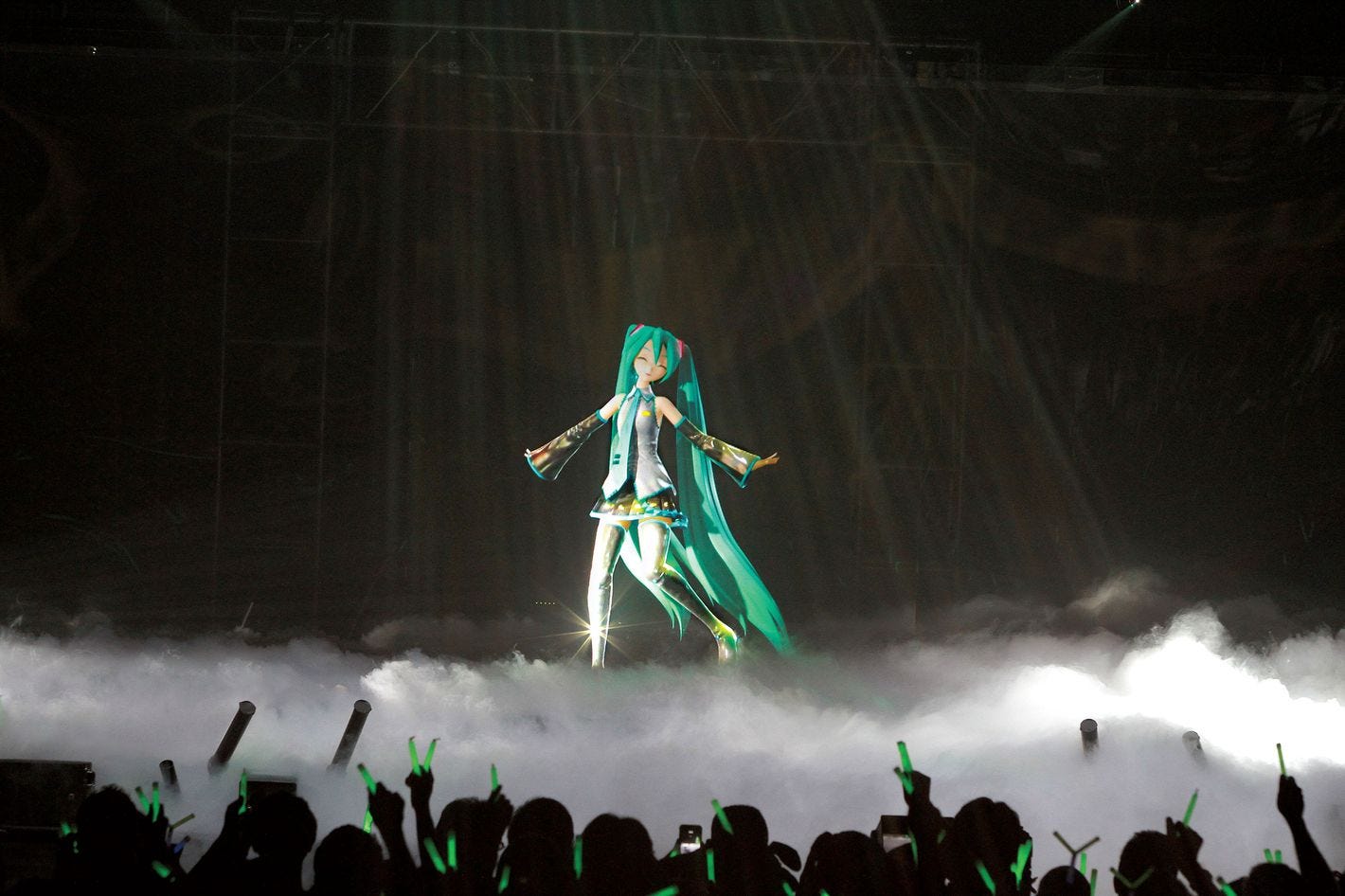I went to an AI concert and I saw the future of generative AI 🤖🎤
Generative AI avatars will appear in the physical world
Last week, I went to an AI concert and it was eye opening.
To be more precise, I actually attended the concert by aespa, a four member K-pop group. During the concert, they showcased Naevis, a fictional AI system that has been featured in aespa’s music videos and has their own social media channels such as Instagram, YouTube, and TikTok. Naevis is actually debuting their song"Done" on September 10th, 6PM (KST).
According to SM Entertainment, the company behind both aespa and Naevis, Naevis uses AI voice technology and generative AI for its visuals.
You can check out Naevis’ performance below.
While the performance was just a few minutes long and only a pre-recorded video, the possibilities are endless.
Imagine combining generative AI with the hologram technology used by ABBA — you could have hologram musicians that interact with the audience.
One of the challenges for K-pop entertainment companies, as I outlined in my previous article, is the significant upfront investment into trainees. Virtual idols powered by generative AI significantly reduce this challenge. Although, there is the obstacle of obtaining enough compute power and having staff who are proficient with AI.
Generative AI musicians in concerts
Virtual concerts aren’t a new concept — in fact Hatsune Miku, a virtual singer, held her first virtual concert 11 years ago.
What is novel is combining generative AI with virtual avatars. With an artist's permission, you could train an AI model on hours of their audio and video to create a realistic avatar. Imagine sitting at a concert and a virtual Michael Jackson performs the moonwalk or watching virtual versions of The Beatles play Yesterday.
With the rampant IP theft occurring in AI training, it would be remiss of me not to stress the importance of obtaining the correct permission and licensing from the artists or their estates.
Generative AI avatars in museums and art galleries
Most museum displays are often boring, plain, and typically text based.
But imagine training a generative AI model on accurate historical information to create an avatar that could converse with visitors. Imagine asking Albert Einstein to explain his theory of special relativity or chatting to Taylor Swift about the inspiration behind her latest album.
Think Madame Tussauds but virtual, interactive, and more informative.
Most applications of generative AI have been aimed at improving human productivity, I can’t wait for it to be focused at entertainment instead. Let's face it — we will need escapism more than ever.
Things that caught my attention
I made my podcast debut — watch it here
Meta is shutting down its AR platform called Spark much to the dismay of creators - from TechCrunch
The White House has joined LinkedIn







